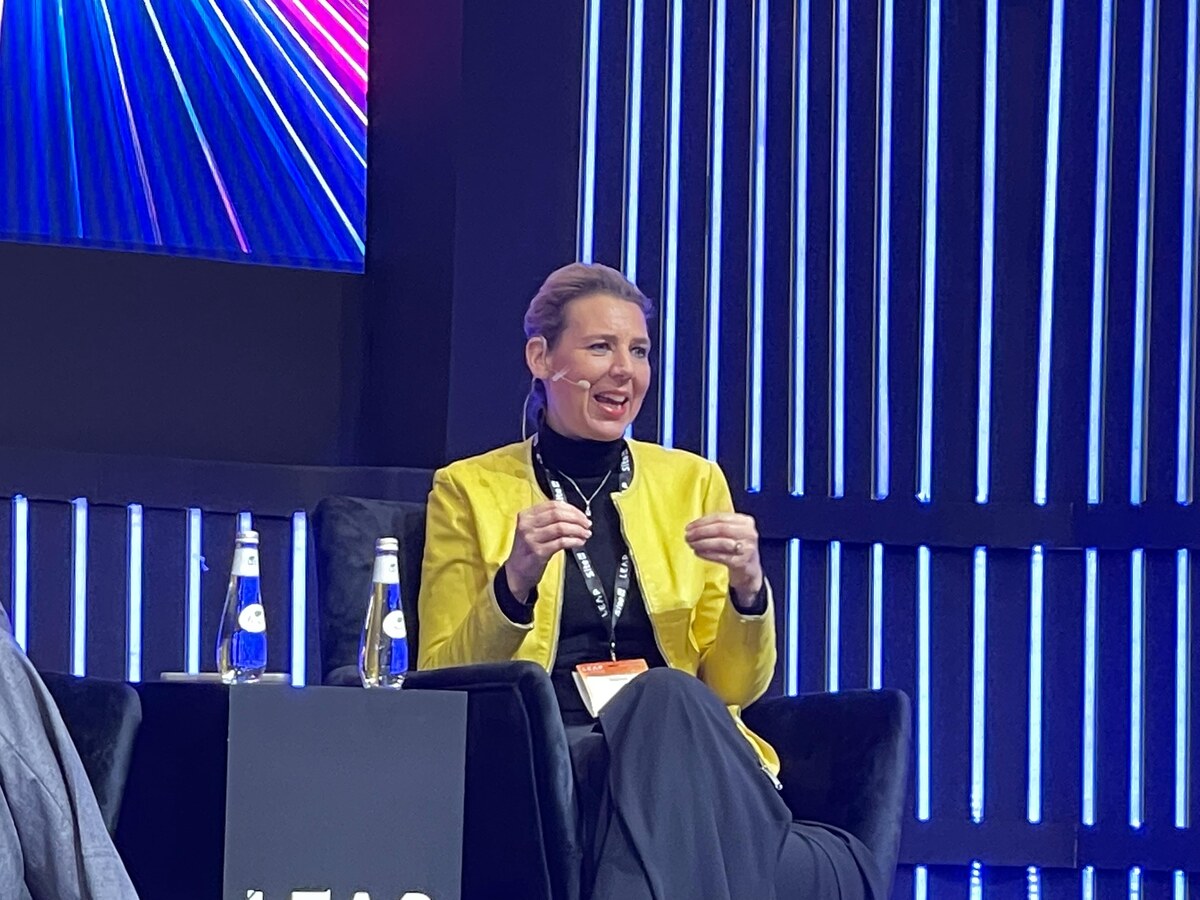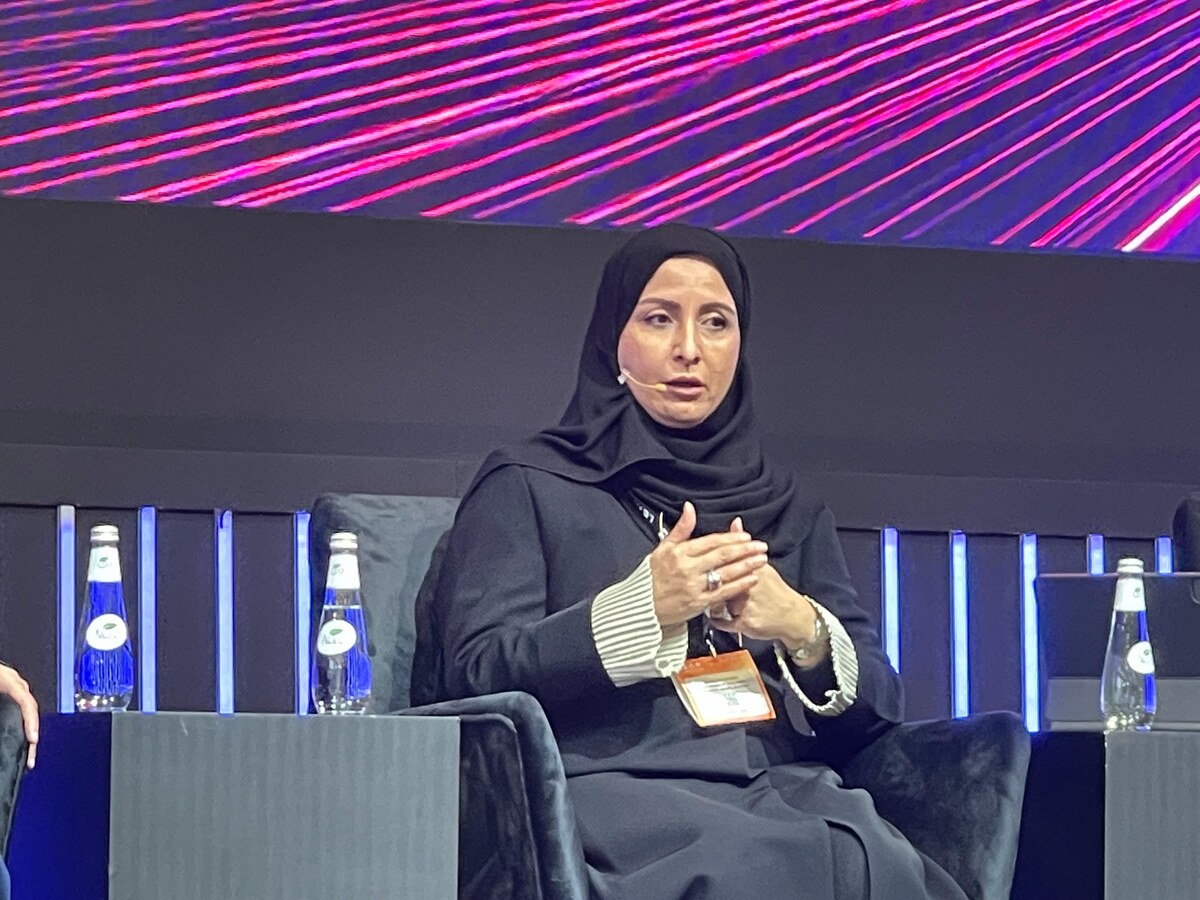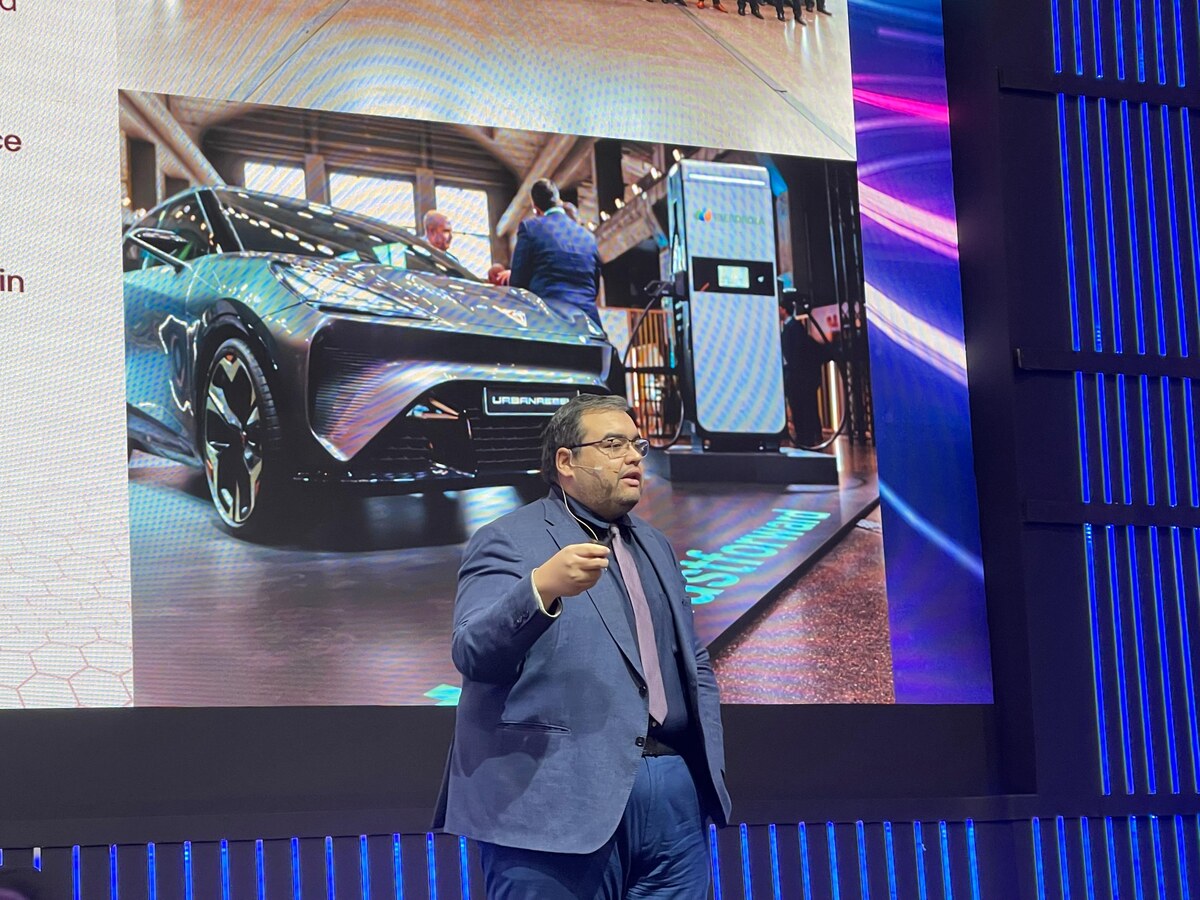RIYADH: Saudi Arabia is quickly becoming a dominant force in the regional technology ecosystem, establishing itself as the “center of gravity” for startups in the Middle East, according to an industry expert.
In an interview with Arab News during the LEAP 2025 Tech Conference, Mohammed Al-Zubi, founder of Saudi early-stage venture capital firm Nama Ventures, stated that the rapid evolution of the event is a reflection of the momentum in the sector.
“The amount of progress we’ve made from LEAP 23, 24, 25 — it’s phenomenal,” he said, adding that the impact of the event is mind-boggling.
“Minister Al-Swaha was on stage — the level and magnitude of the announcements are really mind-boggling,” he added.
He emphasized that the Kingdom is now a regional leader in investment, deal flow, and overall market growth. “If you look at all the reports, Saudi Arabia today is leading on all metrics.”
Prioritizing teams over ideas
As an early-stage firm, Nama Ventures focuses on investing in strong founding teams with complementary skill sets and clearly defined roles.
Al-Zubi described the company’s investment approach as having two key components: a micro-level evaluation of the team and a macro-level assessment of the idea. “As they say in real estate—location, location, location—here, it’s team, team, team,” he explained.
He stressed that Nama Ventures typically avoids investing in solo founders unless they have an exceptionally strong track record.
“We typically don’t invest in solo founders unless the pedigree speaks for itself,” Al-Zubi said. Instead, the firm looks for teams with clear role clarity and complementary skill sets, ensuring a balance between execution, operations, and sales.
“So it can’t be, you know, two sellers coming together. We want to see the seller, the doer, and the operator,” he explained.
While Nama Ventures is willing to take risks related to execution, it steers clear of risks associated with unproven business prototypes. The firm prefers to invest in established business models rather than entirely new concepts.
“We don’t mind what we refer to as copycats,” he said. “We think about taking a model that works very well, innovating, and localizing it for this part of the world makes sense.”
The firm is particularly interested in startups that can adapt existing successful business models to the MENA region while minimizing risks.
AI across all industries
While Nama Ventures remains broadly sector-agnostic, it is naturally inclined toward industries with strong transactional components.
“Although we say we are sector agnostic, in reality, we don’t add much value if it’s a gaming or content company,” Al-Zubi noted.
“We like and favor transactional stuff. Show me a product or service in exchange for a riyal.”
This focus has led the firm to invest more heavily in fintech, proptech, and other sectors with clear revenue streams.
Artificial intelligence is another critical element in the firm’s investment thesis, not as a standalone category but as an embedded technology across various industries.
“Today, we don’t think of AI as a separate model. We want to see AI embedded in fintech. We want to see AI embedded in proptech. We see AI embedded in entertaintech,” he said.
Al-Zubi emphasized that startups that fail to integrate AI into their operations risk falling behind. “If you have not taken advantage of AI today, you are a generation behind, and you’re in the playground with a broken leg,” he added.
Nama Ventures has incorporated AI tools to enhance its investment process.
The investment approach
Al-Zubi highlighted that Nama Ventures differentiates itself by taking a highly involved approach to supporting its portfolio companies.
The firm does not act as a passive investor but instead plays an active role in guiding founders, leveraging its entrepreneurial experience.
“The beauty about this asset class is there is no such thing as an investor— you have to be a value-add investor by definition. We’re not silent financial investors. Part of our role is to provide value-add,” he said.
He pointed to Nama’s experience as a key differentiator. “We’ve walked the talk. We say we are technologists that became technology managers, that became entrepreneurs, that failed and succeeded, that became angel investors, and then fund managers,” he explained.
“I always joke and say, if you have not had a moment where you look into the ceiling worrying about payroll as a founder, you should not be writing checks for early-stage founders because you lack that entrepreneurial empathy.”
Nama Ventures also helps its portfolio companies navigate the complexities of fundraising. “We do a lot of heavy lifting on structuring the rounds in itself,” Al-Zubi said.
“A lot of the time, although we’re on the buy side—we’re investing—we’re really helping them out, almost like a sell-side advisory, in terms of helping them think about the deal and the terms.”
He emphasized the importance of ensuring that founders understand the agreements they are entering. “We love that our founders are educated and sophisticated because it makes for a better long-term relationship.”
The firm’s technical expertise also sets it apart from other investors. “We’re geeks. We’ve been on the console, we’ve written code,” Al-Zubi said.
“If you want to be a tech investor and don’t have a tech affinity, I think that’s a disadvantage.” This hands-on technical knowledge enables Nama Ventures to assist startups in building their tech teams and optimizing their technical infrastructure.
“We’re known as the fund that can help you find your CTO (chief technology officer) or connect you and help you with your tech stack.”
An unconventional LP base
Unlike many venture capital firms that raise funds from institutional investors or sovereign wealth funds, Nama Ventures opted to build its first fund primarily through high-net-worth individuals and family offices.
“We opted for Fund I, which is not typical. We didn’t raise from sovereigns, we didn’t raise from institutions,” Al-Zubi said. “We went the high-net-worth family office route, and we enjoy a very healthy LP (limited partners) base.”
Nama’s investors see the firm as a vehicle for accessing early-stage opportunities while managing risk.
“We’ve got 63 LPs that have partnered with us, and we’ve become their feeder fund,” Al-Zubi explained.
Many of these family offices understand that early-stage investing can be highly risky and challenging to diversify on their own.
“A lot of the family offices come and say, I really should not be doing early-stage pre-seed and seeds. It’s too risky, I’m going to lose money, I cannot diversify—let Nama be my diversification engine. Let them uplift that deal flow, and I’ll cherry-pick their winners and co-invest with them.”
This approach has allowed investors to invest in leading technology companies at such an early stage.
Al-Zubi referenced startups like Tamara, Salla, and Calo, which are all Nama portfolio companies on the path to initial public offerings, with some currently crossing $1 billion in valuations.
KSA’s support for startups
Al-Zubi believes Saudi Arabia’s support for the startup ecosystem is unmatched globally. Having spent time in the Silicon Valley, London, and the Middle East, he argued that the Kingdom’s government-led initiatives are unparalleled.
“I would argue that Saudi Arabia today has an unparalleled support and incentive plan for the tech startup ecosystem,” he said. “The coopetition between the government entities, whether it’s NTDP (National Technology Development Program), whether it’s MISA (Ministry of Investment of Saudi Arabia), whether it’s MISK—it’s incredible. It really is incredible.”
He sees the Kingdom’s multi-layered approach to economic development—attracting global tech giants while nurturing early-stage startups—as a key driver of long-term growth.
Just act
Al-Zubi encourages aspiring entrepreneurs to take the leap and start their own businesses, highlighting that the experience of building a startup is an invaluable learning opportunity.
“My advice is just do it. You don’t have to have all the answers—you have to figure it out along the journey,” he said.
“Even if you do an entrepreneurial endeavor and fail, you are so much more interesting for the next job. You’re probably going to get your boss’ boss’ job because you’ve spent a year, 18 months being a domain expert in that field.”
He urged founders to embrace iteration and adaptability. “We have a saying: if you’re still on the same business model 18 months from launching, something is actually wrong. You cannot be that right,” he said. “Keep pivoting and iterating till you get more product-market fit before you run out of cash.”





























